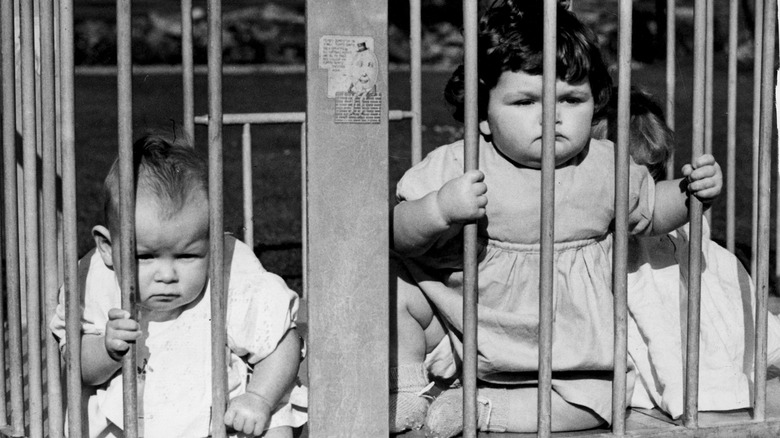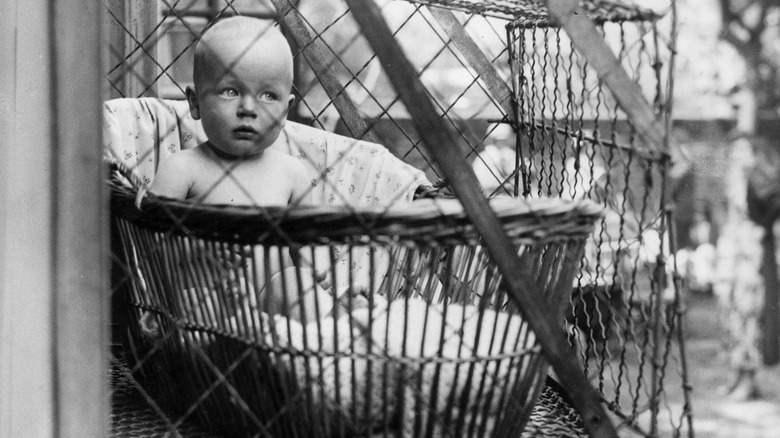Why Parents In London Would Set Their Infants In Window Cages
The phrase "baby cage" is not just unfamiliar to most of us, it evokes a kind of horror. Babies? In cages? Well, not so long ago, they were the choice among forward-thinking London mums before the advent of jolly jumpers, tummy time, and wipe-and-go play mats.
Baby needs some fresh air but you've got things to take care of around the house? Throw those kids in a cage! OK, it's not as blithe as all that. The devices weren't just conceived to help frazzled mothers but were actually believed to be healthful for babies. According to Good Housekeeping, which quotes from the 1884 book that spawned the craze, "The Care and Feeding of Children," Dr. Luther Emmett believed that babies needed to be "aired." (Been around diapers? Makes sense) This would ensure the babies could "renew and purify the blood." Um, we're not so sure about that second part, doc.
When baby cages were all the rage
Dubious medical claims aside, most of us feel better when we get a bit of fresh air, so why should babies theoretically be any different? Remember too that those mothers had likely come of age during the worldwide flu epidemic just a decade or so earlier, so it does make sense. So how did these modern marvels work exactly? Well, you know window air conditioner units? Um, like that. Exactly like that.
The wire cages would hang suspended high in the air above the streets below. Presumably, mothers could keep an eye on the babies from a distance, but the cages were believed to generally be very secure. And as any city dweller who has made use of a roof or fire escape knows, sometimes you just need a little fresh air within the confines of the urban jungle.
And though the science might be a bit off, it's not entirely wrong. According to The Telegraph, exposure to fresh air and sunshine can help babies sleep better at night — a respite to parents of wee ones as welcome as a few moments of stolen time as the baby chills on the fire escape. Come to think of it, maybe they were onto something back then.

